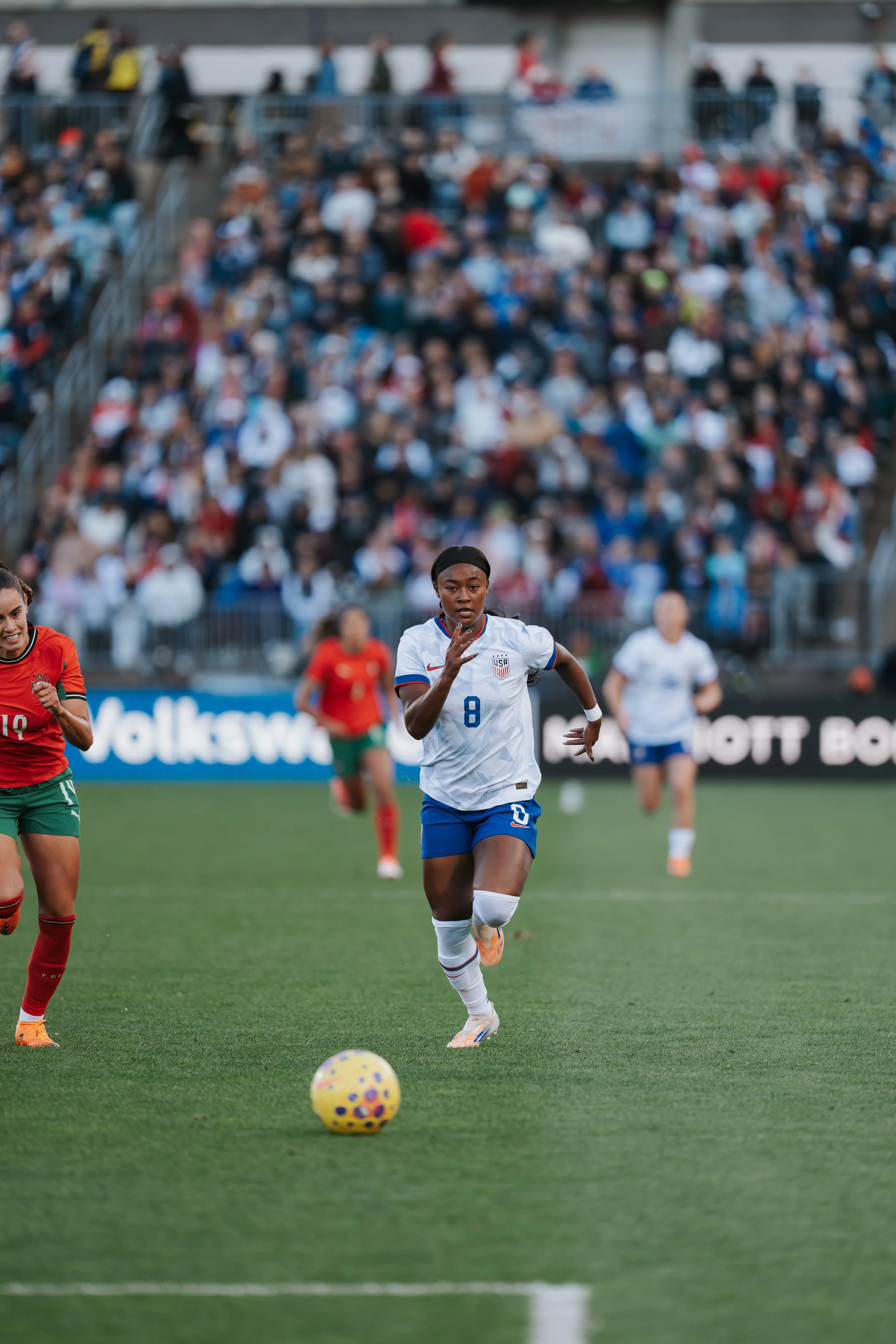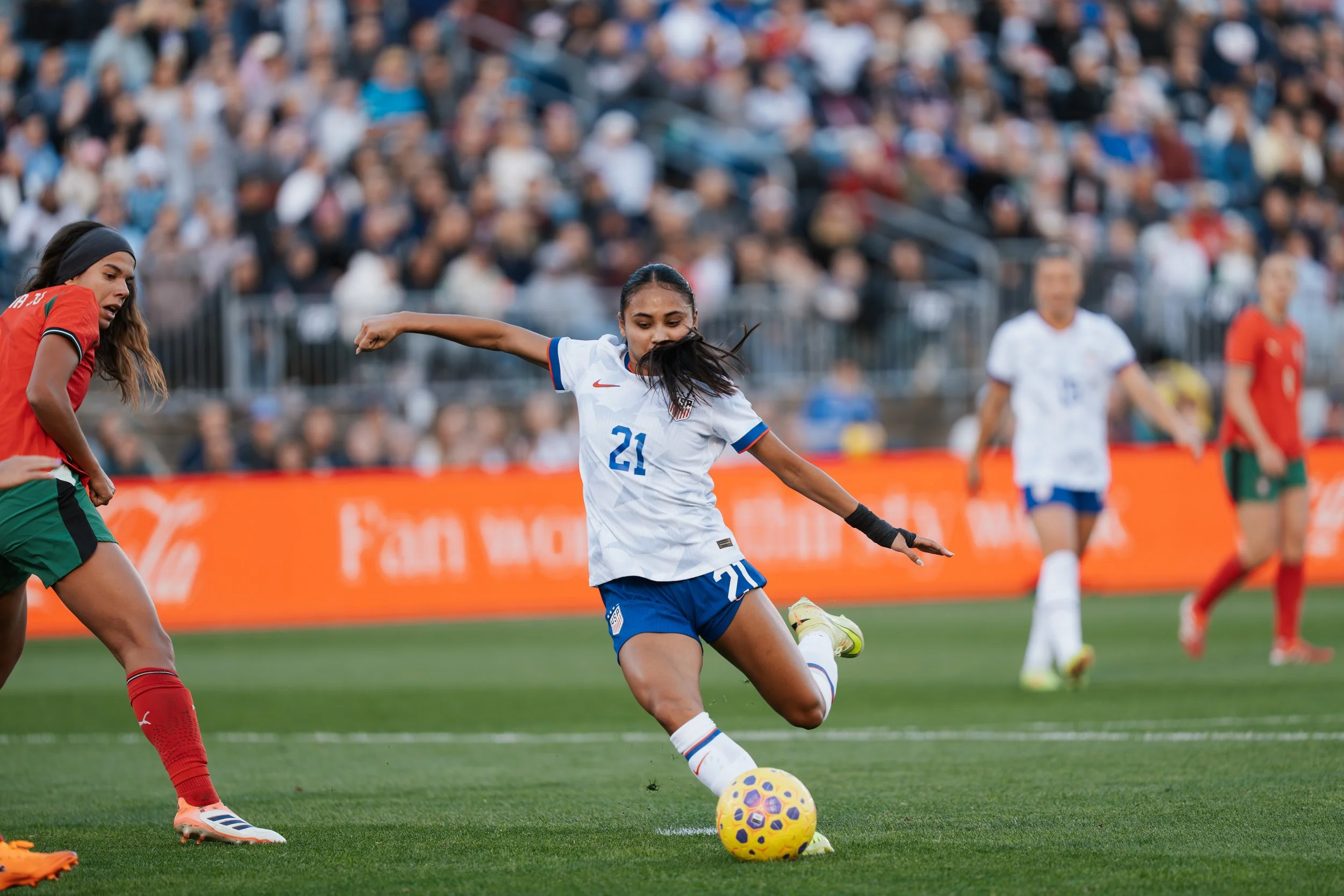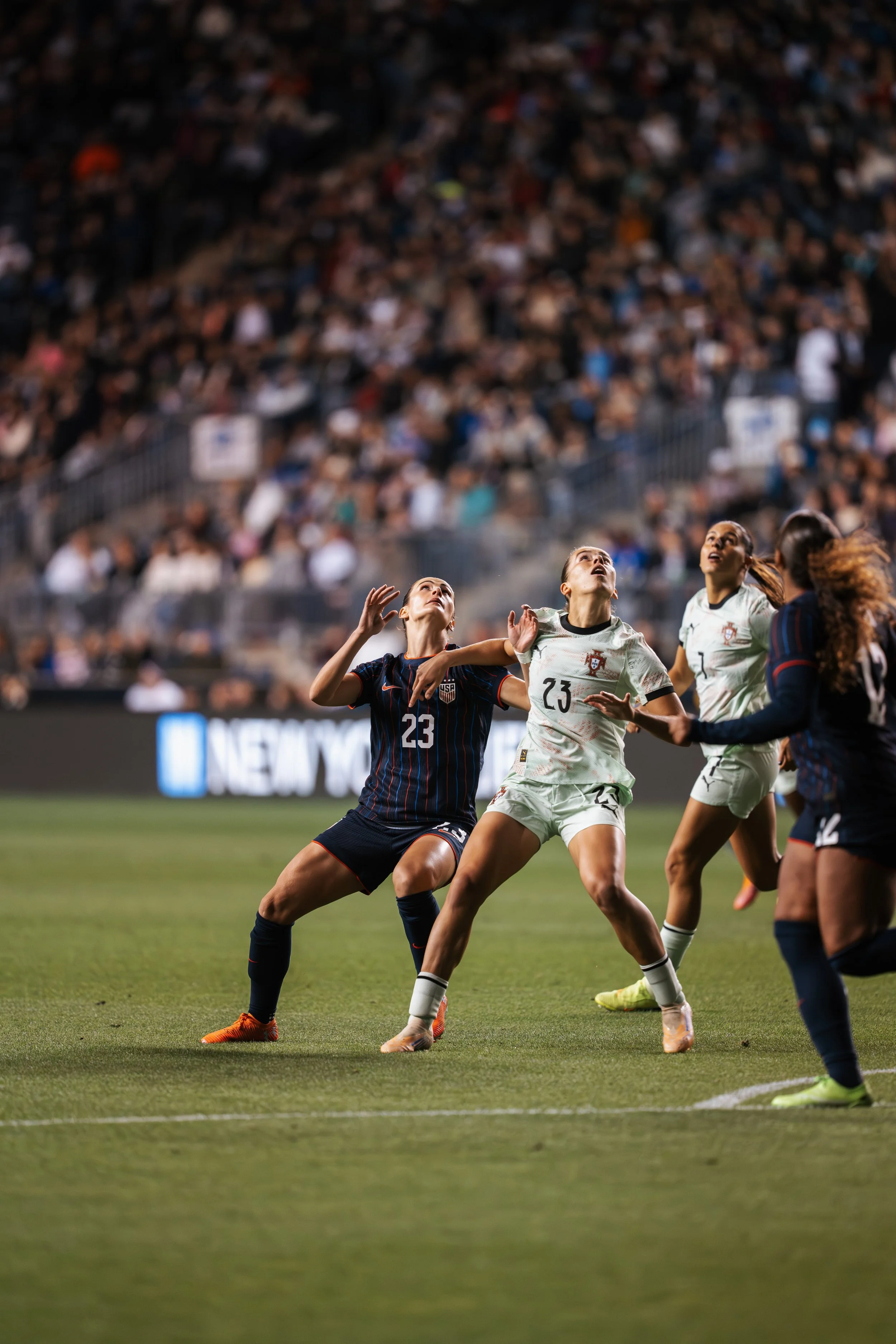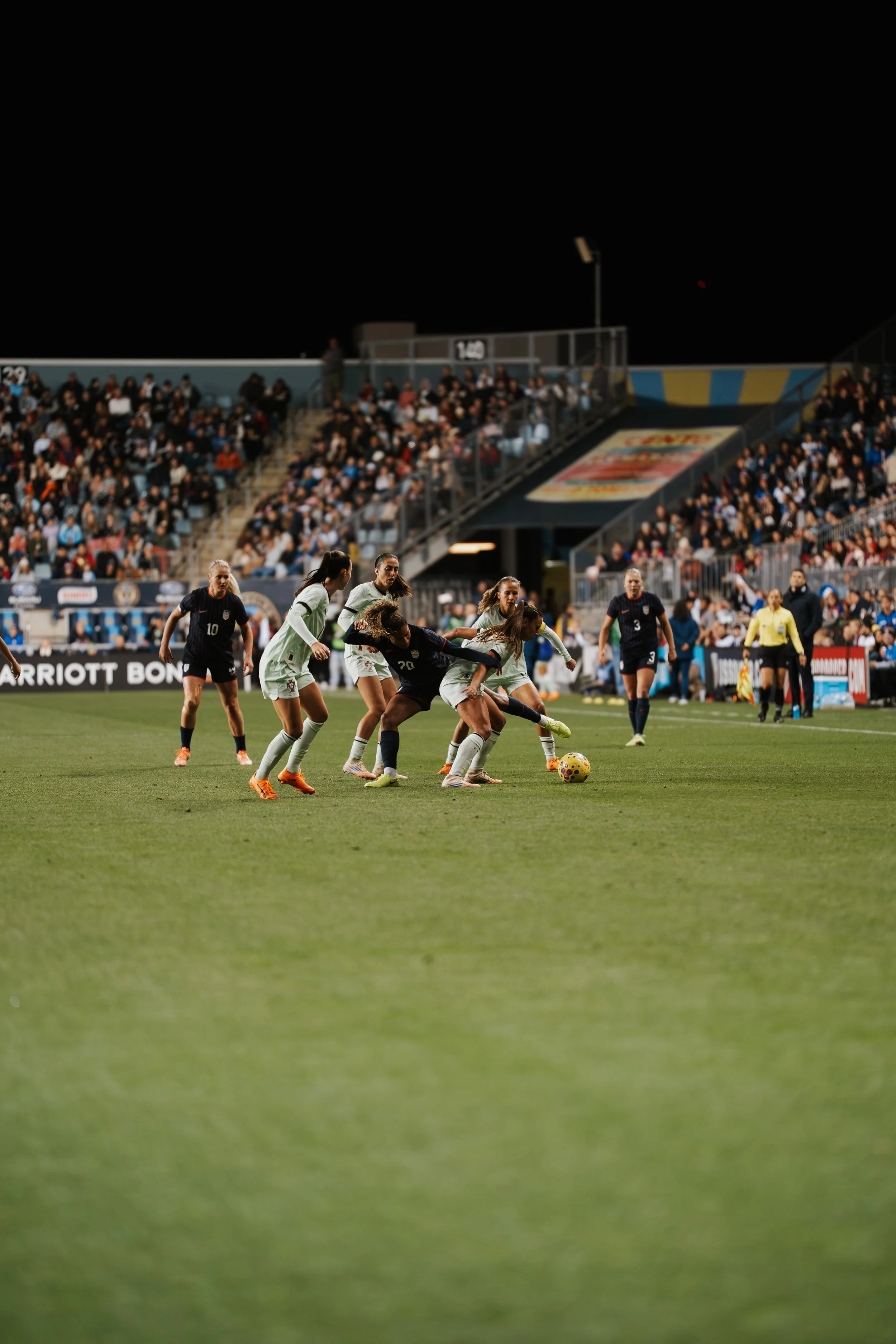Alex Morgan says goodbye as USWNT LOSE 2-1 to Portugal
There was a quiet irony in the air at Subaru Park in Chester, PA on the crisp October night of Alex Morgan’s retirement from the USWNT. The same ground where she scored her first international goal now hosted a team being built in a different image — and the one she once led was retiring her number in tribute. It was a night that folded emotional memory into visible progress. Under Emma Hayes, the U.S. has replaced the chaos and charisma of the Morgan era with composed control — a game less about moments and more about systems, shape, and structure. For years, the U.S. thrived on the inevitability of a Morgan run or a Rapinoe cross; now, they win through spacing, tempo, and tactical cohesion. The proof came in Paris — Olympic gold without their most recognizable face. Still, Morgan’s retirement carries the ache of a handoff she never got to make, the memories of her omission from that roster still relatively fresh. The program she helped define has evolved beyond her, and in the same stadium where it began, that evolution feels complete.
Alex Morgan’s career with the United States Women’s National Team spans 224 appearances, 123 goals, and 53 assists. She leaves as one of the most prolific forwards in the program’s history, fifth all-time in scoring and central to two World Cup titles and an Olympic gold medal in London. From the five-goal match against Thailand to the decisive strikes in knockout rounds that carried the U.S. through eras of dominance, her impact was constant. For more than a decade, she was the face of American soccer — a player whose presence alone shaped how opponents prepared and how fans defined winning. Tonight isn’t just a farewell; it’s recognition of a career that helped set the standard for what comes next.
If the opening ceremony belonged to Alex Morgan, the opening minute belonged to Rose Lavelle. On her 114th cap, she scored just 33 seconds in — a perfectly timed run into the box and a clinical finish that set the tone for everything Emma Hayes has been preaching. It was fitting that the chance came from Catarina Macario, who had scored within the first 35 seconds in the previous match against Brazil. This team has learned how to strike fast, not by chaos but by clarity.
Portugal pressed high, one of the few sides willing to test the U.S. that way, but when Hayes’ group broke through the first line, the space opened easily. Lavelle nearly doubled the lead in the eighth minute after a brilliant pass from Alyssa Thompson, only for the post — and a touch from the keeper — to deny her. Through the first half, the U.S. looked in control, opening Portugal at will, composed in buildup and aggressive in the “assist zones” that Hayes emphasized as a focus of this camp.
In her words the day before: “We want continuation, consistency, control of the game — and the right decisions when the ball gets into those assist zones.”
It’s been that kind of camp — deliberate, connected, and unmistakably cohesive. Hayes has already handed 24 players their first caps in her first 25 games in charge, and the cohesion is starting to show. Even the details tell the story: Avery Patterson, once a college forward, pushing higher up as a fullback to apply pressure, while Emily Fox holds deeper to balance possession.
Beyond the pitch, the culture feels renewed. Trinity Rodman showed up to support the team despite her injury — a small gesture that speaks to the sisterhood Hayes keeps building. Before kickoff, the visual was striking: the U-23s warming up next to the senior team while the retired legends looked on. Generations, side by side. Hayes called it “the tradition of honoring players” — and hinted that one of those U-23s will be called up for the next match in Hartford.
It all feels intentional. The football, the culture, the continuity. Even on a night meant to celebrate Alex Morgan, the message was clear — the program she helped build is growing in every direction.
By the midway point of the half, the U.S. had settled into a press of three — a small but telling adjustment. It stretched Portugal’s buildup and allowed the Americans to win the ball higher, but it also left pockets that the visitors began to find. The tempo stayed high, especially through Lindsey Heaps, whose pace and vision linked with Alyssa Thompson on the counter with near-telepathic timing. There’s a rhythm forming there — one built on trust and repetition, not improvisation.
Still, Portugal grew into the match. In the 39th minute, Tatiana Pinto nearly punished a lapse in coverage, and less than a minute later, Diana Gomes did. Her header off the corner — her eighth international goal on her 60th cap — leveled the score and reminded the U.S. that control doesn’t always mean comfort. It was a rare moment where the defensive structure blinked, and Portugal made the most of it.
For all the dominance in possession and movement, the final stretch of the half carried a different energy — one of awareness. Hayes’ side is learning not just to play their system, but to live in its vulnerabilities. It’s part of the process, and Portugal, ranked 23rd in the world, made sure to underline that lesson.
If the first half was about reflection and control, the second began with confrontation. Emma Hayes didn’t mince words at halftime, calling the first half “horrific.” Portugal had lined up in a 4-diamond-2 instead of the five-back she’d prepared for, and it showed. The U.S. midfield struggled to find rhythm, losing second balls and tempo. Hayes’ response was immediate — a shift to a 3-5-2, with Emily Sonnett stepping into a false nine to win aerial duels and restore structure. “If I didn’t wake them up in the locker room,” she said, “I have a whole bench that can replace them.”
Portugal, to their credit, never relented. Their press came with speed and intent, closing down every touch and forcing the U.S. into mistakes. The game turned physical, highlighted by a yellow card near the edge of the box and a free kick that nearly led to a penalty. Fatigue and rust — the product of 113 days without a match — began to show. The midfield couldn’t hold possession long enough to build patterns, and Portugal sensed it.
By the 68th minute, Hayes turned to her bench — Emma Sears, Yazmeen Ryan, and Olivia Johannes came on to restore energy. Sears, the NWSL’s leading American scorer with ten goals this season, immediately stretched the field. But in the 71st minute, Portugal capitalized again, punishing sloppy defending on a corner. Fátima Pinto’s strike — her fifth international goal on her 96th cap — gave Portugal the lead and underlined the difference in sharpness.
Hayes made one final change, replacing Rose Lavelle with Jaedyn Shaw, the 19-year-old promoted from the U-23s for this window. Shaw’s inclusion felt symbolic — the next generation learning under pressure, in real time. After a quieter run of form, she said earlier this week she just wanted to “build relationships and trust with the senior team.” Nights like this are where that begins.
By the final whistle, the scoreboard mattered less than what the night revealed. The U.S. looked human — disjointed in phases, punished on set pieces, still searching for rhythm after a long break — but also unmistakably in transition. This is what evolution looks like in real time. Hayes’ honesty in her halftime remarks wasn’t frustration for its own sake; it was a reminder that standards don’t pause between eras.
Alex Morgan’s jersey retirement framed the evening in nostalgia, but the match itself was a lesson in the present. The U.S. is learning to win differently, to trust a system over a single star, to build composure where chaos once lived. The faces are younger now, the tactics sharper, and the leadership quieter — but the ambition hasn’t changed.
As the players gathered post-match, Morgan stood among them — smiling, applauding, fully aware of what she was watching. The program she helped define is still hers in spirit, even as it grows in new directions. There’s symmetry in that. The night that celebrated her past also made clear what her legacy made possible.










